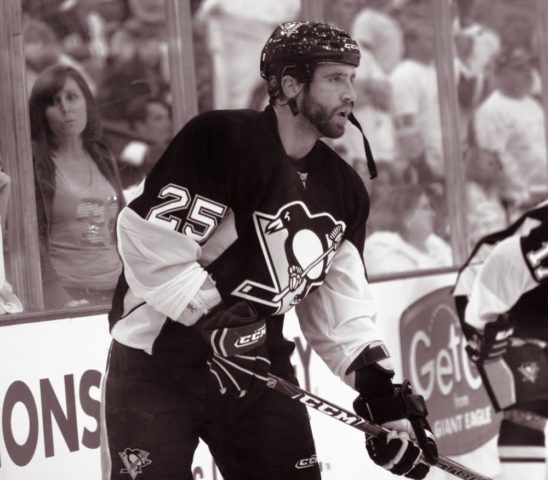As every Toronto Maple Leafs’ fan knows, the last five seasons have been frustrating. It’s been regular-season success and playoff failure. The Maple Leafs haven’t been able to move past the first round of the Stanley Cup playoffs for 17 seasons. In other words, every single playoff series they’ve played, they’ve lost.
Related: Maple Leafs’ Trade Scenarios: Two Crucial Tipping Points
Maple Leafs’ Fans Expectations Seem to Be Growing
The one interesting thing we (again, I’m collaborating with long-time Maple Leafs’ fan Stan Smith on this post) have noticed is that, over the last five seasons the fans’ and the media’s expectations of what it means to have a successful season have risen, season after season. With the influx of players such as Auston Matthews, John Tavares, and Mitch Marner, it’s no surprise.

There was a time when the Maple Leafs even making the playoffs would have been a success. Winning seasons were few and far between. In fact, prior to 2016-17’s surprising breakout season, the team only had three winning seasons in their past eight.
Related: A Look Back at the West Coast Express Line
To us, it appears that Maple Leafs’ fan’s and the Toronto-based media’s perceptions of what would be considered a successful season have risen since 2016-17. They’ve especially risen during the past three seasons.
Until the 2020-21 season, it was generally considered that getting past the first round would be considered a success. However, last season the team would have had to come out of the North division to make the final four NHL teams to be considered a success.
This offseason, in our hearing and reading, the only thing that seems to be an acceptable success would be a Stanley Cup. Many fans seem to express the belief that, if the team can’t win the Stanley Cup this season, general manager Kyle Dubas (and his crew) should be canned.
If our perception is accurate, we suggest that Maple Leafs’ fans should expect to be disappointed. Chances are not in favor of the Maple Leafs winning the Stanley Cup.
Why It’s Hard to Win a Stanley Cup
There are many reasons why winning a Stanley Cup is difficult. First, there are now 32 teams in the NHL. If everything were truly equal and true parity existed, it would mean the Maple Leafs’ chances of hoisting the cup in the coming season would be 32 to 1, or three percent. Looking at it the other way, there is a 97 percent chance they won’t win.

In fact, the NHL tries to achieve parity through its rules. For example, a hard salary-cap does not allow rich teams to load up great players. That the poorer teams are able to draft the top prospects every season also works to prevent teams from becoming significantly better than others. However, even with those rules, certain teams – either through excellent management, the ability to ice great players at the same time, team chemistry, or a lot of luck – are better teams than the rest.
Who’s the Best Bet to Win The 2021-22 Stanley Cup?
As soon as one season is over, betting sites post their betting odds for the teams they believe should win the Stanley Cup during the up-coming season. Currently, the Colorado Avalanche are the odds-on favourite to win the Stanley Cup in 2022. They are, depending on the site, between 5 to 1 and 7 to 1 odds to win. That translates to between a 75% to 85% chance that the Avalanche will not win.
Related: Lorne “Gump” Worsley: The Story of an Icon
To a point, the betting sites share Maple Leafs’ fans’ expectations. The Maple Leafs are among the top-10 teams predicted to win. And, depending upon the site, at between 9 to 1 and 14 to 1 odds to win. That works out to an 89% to 93% chance they won’t win.
The Variety of Other Measures that Shape Stanley Cup Play
If we look outside the betting numbers, anyone who has followed the NHL for any length of time knows how many unmeasurable factors come into play during any Stanley Cup playoffs. Things like injuries (this postseason to John Tavares, for example), hot goalies (last season’s Dallas Stars backup Anton Khudobin, for example), unknown or unheralded players who get hot (for example, the Pittsburgh Penguins’ Max Talbot had the post-season of his life in 2009 to help lead his team).

All or any of these things can have a significant impact on the results of a game or series. There are so many unknowns involved in NHL hockey that it’s impossible to quantify what it will take for any given team to win the Stanley Cup.
The Scientific Measures Each Team Takes to Improve
Finally, the competition to win a Stanley Cup is so enormous that individual teams employ the most scientific research possible to keep the goalposts constantly moving to their benefit. Every season, all 32 NHL general managers and their management teams work together to (a) judge their team’s performance during the previous season; (b) assess what their team needs to improve; (c) decide what players it should move out and what players might be available to help make there own team better; and, (d) make whatever changes it can to improve their team over the short and/or the long term. And, they must do all these things while keeping their own payrolls within the limits of the salary cap.
All these activities are done more or less blindly. No team can ever really know if a player it brings in will mesh with the players they already have on their existing rosters. Teams have no way of knowing if their top scorer will continue to score at the same pace he scored last season or if their goalie will be as good, better, or worse than they were.
That’s not even counting any changes happening on other teams. Those matter as well.
And, Here We Are with the Maple Leafs
Every season I’ve covered the Maple Leafs over the past three years has produced exciting hockey, with its ups and downs and failures and successes. For each of those past three seasons, I’ve expected the team to play well and have a chance at a long Stanley Cup run. They’ve played well, but no Stanley Cup run. It’s been frustrating.
Stan, who’s been watching this Maple Leafs’ team many seasons longer than I, has his own frustrations. And, they’ve been going on a much longer time than my own.
Related: Toronto Maple Leafs: Assessing Kyle Dubas’ 2 Years as General Manager
As we noted at the beginning of this post, each season over the past five the Maple Leafs have played well. However, each season something (or some things) has happened that has kept them from advancing.
Given the turmoil of all these things working at odds, Maple Leafs’ fans who enter the upcoming 2021-22 NHL season knowing they’ll only be happy if the team wins the Stanley Cup should probably expect to be disappointed. Still, we’re hoping this is the season.